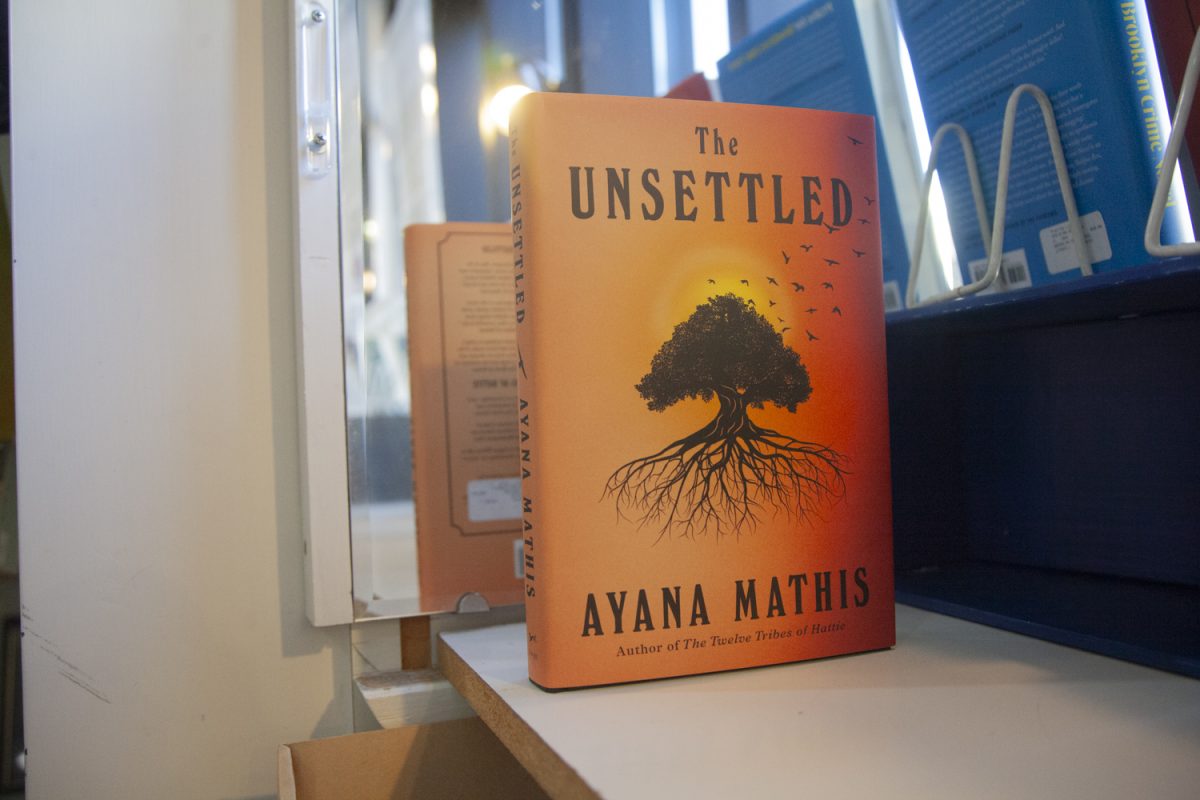Ayana Mathis is a graduate and former faculty member of the Iowa Writers’ Workshop. While earning her MFA at Iowa, Mathis wrote her first bestselling novel, “The Twelve Tribes of Hattie,” which was selected as an Oprah’s Book Club 2.0 in 2013.
Mathis has released her second bestselling novel “The Unsettled,” which tells the story of a fractured family in the 1980s as they deal with the socio-political, economic, and racial issues of that time.
Mathis is on tour for her novel. She visited the Iowa City Public Library on Oct. 14 as part of the city’s annual Book Festival.
The Daily Iowan: Who was your favorite character to write in “The Unsettled” and why?
Ayana Mathis: The Duchess. When we meet her, she is a septuagenarian and in her 70s. She is also an ex-itinerant, so she’s a person who would sit on the blues circuit like in the 1920s and ‘30s, in periods when women really were the face and voice of the blues. There was a review in the New York Times that described her voice as “delightfully profane.”She cusses a lot, she’s larger than life, she has an opinion about everything and she’s also just kind of complicated. So, even though she has these brash aspects of her personality, she’s also a woman who’s grappling with a certain kind of depression and sadness. I don’t know that she’s my favorite character, although I do like her a lot, but she was certainly easier to write in some ways than the other [characters].
What do you hope readers take away from your new novel?
On one level, this is very much a novel about a fractured family. It’s a multigenerational novel. There’s a mother — that’s Duchess — her daughter, Ava, and then Ava’s son, Toussaint. This family is separated by geography and circumstance and various interpersonal difficulties. So in some ways, it’s a book about will or how will this fractured family repair these ruptures.
In another way, it’s very much about socio-political, racial, and economic circumstances. When the book opens, we meet the Duchess in Bonaparte, which had once been this thriving, vibrant, all-Black settlement and had been for many years. But, at the beginning of the novel, there are only five older people left as all the young people have gone. One of the things the novel is asking is how something like that could happen. On the other side of the novel, we have Philadelphia. There, Ava is wandering around. She left Bonaparte as a young woman and still hadn’t found a place to belong. And then later, as the novel progresses, she becomes part of a radical Black political group with a utopian vision.
In many ways, the book is about these different visions of freedom and autonomy and what threats to those kinds of visions might be, both internally and externally.
How has your time at the Iowa Writers’ Workshop influenced your writing?
I was a student at the UI and got my MFA from Iowa and, a few years later, I came back and taught at Iowa. So, I have a lot of workshop experience. The Workshop is very dear to me and it’s been in my life for a long time. I’d say it radically changed most of what I know. If I know anything, I think I learned it there. I think I was incredibly fortunate. I had an enormous number of brilliant teachers who changed almost everything about the way I understand writing.



